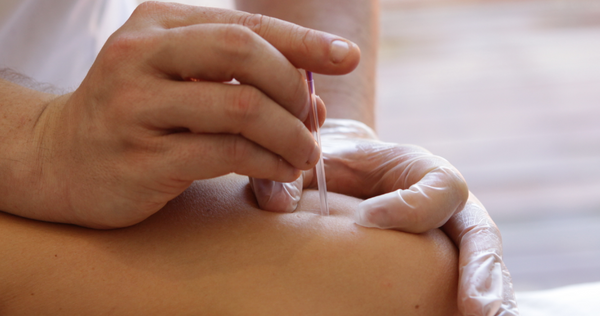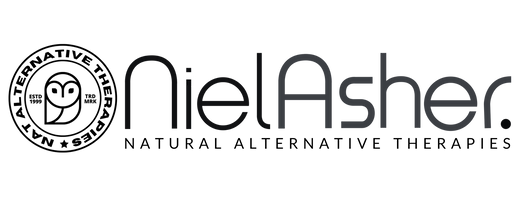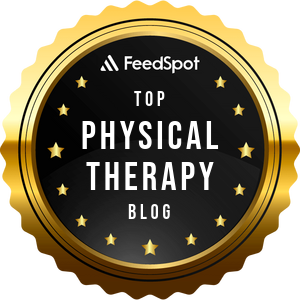Trigger Point Therapy - Dry Needling, Acupuncture and Trigger Points

There could be increased efficacy in pain relief when a trigger point is present at the site of an acupuncture point during treatment.
We find that clients are often confused about the difference (or relationship) between trigger point therapy, acupuncture and acupressure. We also receive a lot of comments on Facebook regarding this issue. There seems to be additional confusion due to the fact that many trigger point therapists practice dry needling, and many acupuncturists include trigger point therapy within their treatment protocols. So here's the best that I can do in today's short blog, which I hope is helpful.
I should add that I'm not a trained acupuncturist, although I have worked with many who are, and I have tremendous respect for the modality and those who practice it.
Trigger Points and Acupuncture Points
While there may be some overlap in trigger points and acupuncture points, they are not the same. Acupuncture points are said to be localized concentrations of “energy” that develop along electromagnetic lines (meridians). Trigger points, on the other hand, are discrete nodular tetherings in the myofascial tissues, which cause a specific and reproducible pain pattern when stimulated.
Acupuncture has long recognized painful points or suggested that the general theory of acupuncture points may have been put forward by ancient Chinese medicine as an “explanation” for the demonstrable and palpable presence of trigger points within myofascial tissues (Simons, 1988). It's worth noting that some leading authorities (Chaitow, 1996) go much further, claiming that there is a 70% correlation between trigger points and acupuncture points.
Furthermore, there is some evidence to demonstrate increased efficacy in pain relief when the trigger point is present at the site of an acupuncture point during treatment.
Specific Energy Field
The "Specific Energy Field" theory has been advanced by advocates of Rolfing (Hunt, 1997; Myers, 2001; Oschman, 2003) as a bioenergetic field generated by the fascia itself. Some also suggest that trigger points develop along lines of altered energetic activity or, at the very least, altered strain patterns.
So, can Acupuncturists Perform Myofascial Trigger Point Dry Needling?
Although acupuncture practitioners already possess excellent needle-handling skills, they will additionally require knowledge of the pathophysiology, etiology, and pain referral patterns of myofascial trigger points.
They will also need to develop the palpation skills required to feel for and find and locate myofascial trigger points in order to ensure accuracy during dry needling application.
Myofascial trigger points are not acupuncture points, tender points, or ah shi points, and can form anywhere in the millions of muscle fibers throughout the body. Overlapping acupuncture points with myofascial trigger points and then removing all but the points that coincide would obviously lead the uninitiated to see a corresponding relationship.
Simeon Niel Asher is a British osteopath. He co-founded Niel Asher Healthcare in 1997, is widely acknowledged as one of the worlds leading authorities on trigger points and trigger point therapy. Simeon is a visiting lecturer in the UK, Scandinavia, Brasil, and Australia, and is the author of numerous publications including the best selling "Concise Book of Trigger Points" which has been in print since 2004.
Find a Trigger Point Professional in your area
Nationally Accredited Home-Study Courses
This trigger point therapy blog is intended to be used for information purposes only and is not intended to be used for medical diagnosis or treatment or to substitute for a medical diagnosis and/or treatment rendered or prescribed by a physician or competent healthcare professional. This information is designed as educational material, but should not be taken as a recommendation for treatment of any particular person or patient. Always consult your physician if you think you need treatment or if you feel unwell.

Ready to take your practice to the next level?
Explore which continuing education course is right for you.















